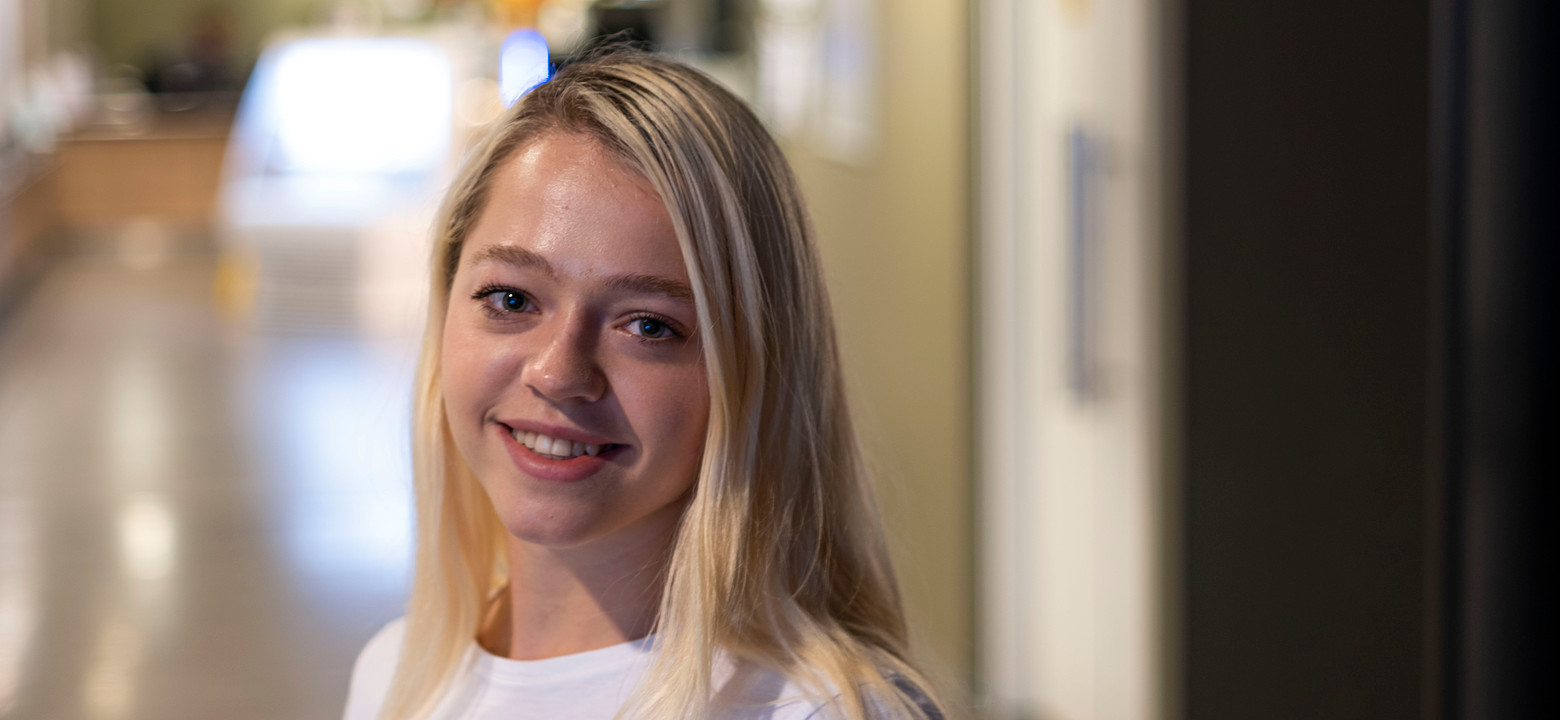Last year, both new students and current Ukrainian students at Saxion could count on a reduction in tuition fees. This year, that only applies to Ukrainians who were already studying here. According to Saxion, it is not financially feasible to charge new students the lower tuition rate as well. Ukrainian students show understanding, although there also is a warning. "I wish Saxion had communicated more clearly about this, because this can create the feeling that it is no longer trendy to support Ukraine."
Just this week, demissionary Education Minister Dijkgraaf called on all educational institutions in the Netherlands to once again charge the reduced tuition rate to Ukrainian students. This fits with the duty of care of institutions to students in a vulnerable position, the minister wrote on X (formerly Twitter).
According to Janco Bonnink, director of Onderwijs and Student Support (OSS), his appeal is unlikely to have any effect on Saxion. "This call doesn't change the context of the situation, so I don't expect a revision of the previous decision-making either," he says via e-mail.
That previous decision-making is that this year Saxion is choosing (like the other Universities of Applied Sciences) to charge Ukrainian students already enrolled here last year the statutory tuition fee of 2,314 euros again. That is almost 6,000 euros less than the 8,190 euros they would have otherwise paid as non-EU students.
What is different is that, unlike last year, newly enrolled Ukrainian students now pay the full non-EU fee and therefore no longer receive a discount. And that while college president Anka Mulder, in the news item in which she announced the discount last year, said she found it very important to "support our current and new Ukrainian students in this way to (continue to) study with us".
Still at war
That remark raises the question what has changed in the meantime. Why did Saxion last year choose to compensate both current students and new students, and does this now only apply to the students already here, while just like then it is still war in Ukraine?
According to Bonnink, the government - including that same education ministry of Dijkgraaf - plays an important role in this. Saxion, he says, simply does not have the financial resources to continue to compensate for this even for the new students. "Despite requests from colleges and universities, the government does not compensate for this. Educational institutions must therefore compensate this amount entirely on their own."
What amounts are we talking about? Compensating will cost Saxion 5,876 euros per student. For the 66 current students that comes out to 387,816 euros. That would add an average of 250,000 to 300,000 euros per year, if the intake is the same, Bonnink estimates.
Bonnink says that Saxion as an institution cannot bear the majority of the costs of educating large groups of students over several years. According to him, the upcoming budget cuts do not play a role in this, although they do generally force the institution to watch costs. "If we were to bear these costs, that means cutting back on other things that are necessary in the interest of all students."

Nataliia Boldueva is a 1st year Ukrainian student in International Business. Photo's: Bas Klaassen
Rotterdam
According to Bonnink, besides Saxion, a large part of the educational institutions choose to stop compensating new Ukrainian students. That is true, although there are educational institutions that still do. Like UT and Rotterdam University of Applied Sciences.
At the latter institution, director Wijnand van den Brink also pointed out that circumstances are no different now than they were last year. "We think it is only fair that we support this group as we did last year. We are continuing our policy and thus showing consistency because the circumstances are no different."
According to Bonnink, the numbers also play a role in Saxion's decision. Compared to other colleges and universities, many Ukrainian students study at Saxion, and this is no different in the new year; according to recent figures, Saxion counts 45 new enrolments from the country, despite the high fees. Bonnink: "It matters whether as an institution you have 5 or 75 students for whom you have to compensate."
Borne
One of the new students is Nataliia Boldueva. The 22-year-old from Zaporizja is starting her new studies in International Business as a freshman this year. She pays the full fee of 8,190 euros, but there is a windfall: her study costs are borne by the Borne municipality. "In that respect I am very lucky. Otherwise I wouldn't have been able to study at all. Students from other municipalities often don't have that luck."
Asked for her opinion on Saxion's decision to stop compensating new Ukrainian students, she shows understanding. "Of course I would have liked the fee to be lower, half, for example, but I understand that it costs a lot of money."
She has fallen in love with Zenderen, where she lives, with its tranquility and its green pastures, and with the people, who have helped her and her whole family tremendously. "So after the war I would like to stay here, but at the same time I hope to be able to help my country and compatriots."
"I wish they had communicated more about it, that they had been more open with us about it. This silence may feel like a sort of abandonment from their side."
Abandoned?
There is also understanding from Anastasiia Orlovska, who already studied CMGT here last year, and thus continues to pay the statutory fee herself this year. She calls the decision a "double-edged cutting sword. "It is understandable that it is very expensive to pay for our studies, but people are still fleeing from Ukraine, and they too deserve the chance of having an affordable study."
According to Orlovska, she was contacted a few times by parents of new enrollees with questions, and in more than half of the cases these were financial concerns. "You also saw that they were considering moving to a country where studying was less expensive."
She says she understands that the solution chosen by Saxion might be the best compromise, but for those who don't understand the reasons, it might send the wrong message. That it is no longer trendy to support Ukraine. "I wish they had communicated more about it, that they had been more open with us about it. This silence may feel like a sort of abandonment from their side."
Confronted with this, Bonnink says Saxion's commitment to Ukrainian students remains high, and that Saxion is trying to continue to support them as best it can, within the possibilities available. "For Ukrainian students who were already here, the situation is unchanged. We notice that new Ukrainian students regret the decision, but they also indicate that they understand the choice Saxion made in this because of the big financial impact for Saxion."
Gerelateerde artikelen
Column: Terrassen na een winterdip
“Het zonnetje schijnt, de lucht is blauw. Dus hup, aan de Weizen dan maar - en wel heel gauw”. Dat was het motto van Huize LP toen de eerste warme zonnestralen van het jaar een einde maakten aan de sombere winterperiode. Zo gezegd, zo gedaan! We maakten de ranzige tuinstoelen schoon en ploften in onze tuin neer. Met een lekkere koude Weizen.
Parttime School heeft nieuwe organisatie nodig; docenten in dienst van de academie
De samenwerking tussen Saxion Parttime School en academies verloopt op dit moment niet efficiënt. Daarom wordt nagedacht over een nieuwe structuur, waarbij een veel kleinere groep docenten in dienst komt van de academie. “Die professionalisering is nodig om onze ambities waar te maken”, aldus directeur Martijn Braber.
Dominique is de nieuwe Miss Teen Overijssel 2025; “Ik was bang dat ik op mijn jurk zou gaan staan”
Dominique Inklaar (17) mag zich sinds een week Miss Teen of Overijssel 2025 noemen. De eerstejaars Sociaal-Juridische Dienstverlening nam het op tegen een tiental andere meiden, en werd tijdens de finale ter afsluiting van drie maanden keihard trainen verkozen tot winnares. Niet iedereen is liefhebber van dit soort verkiezingen, merkt ze: “Iemand vroeg mij in de winkel waarom ik per se op zo’n podium moest staan”, vertelt Dominique.

